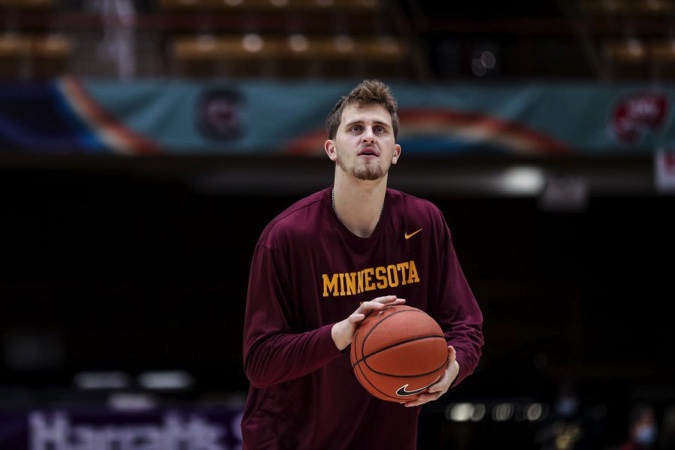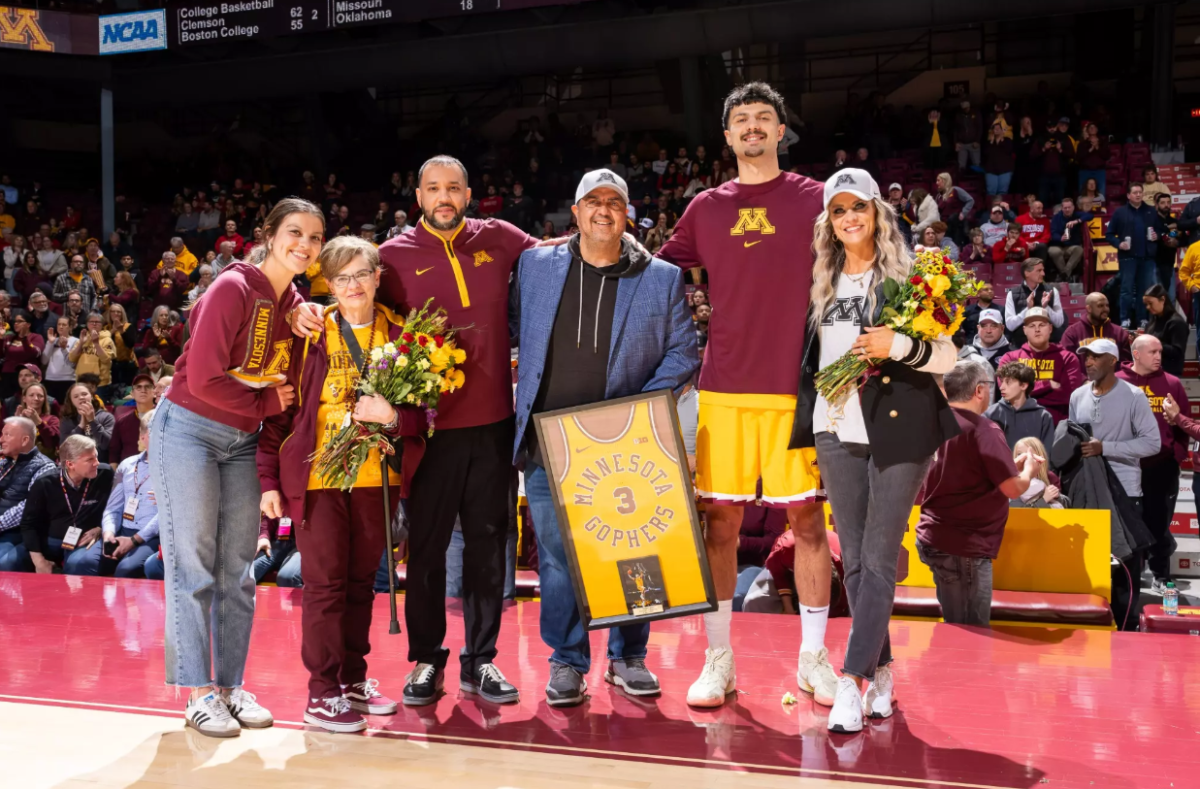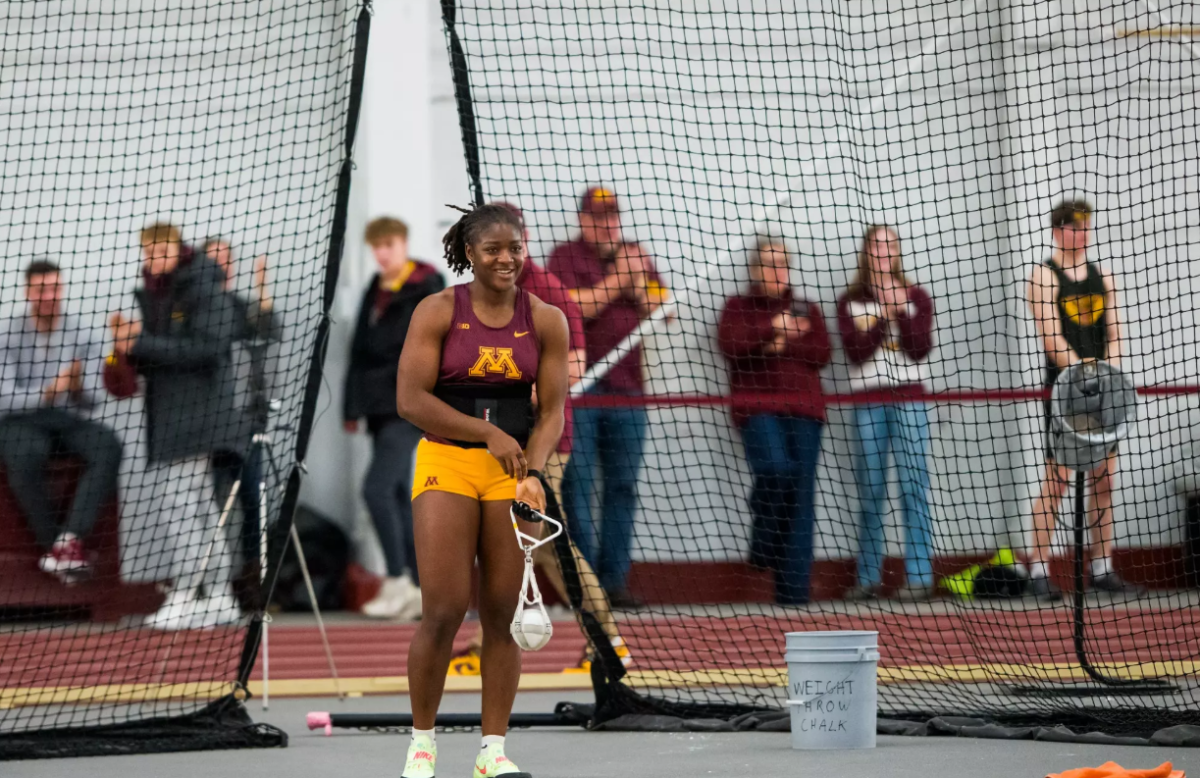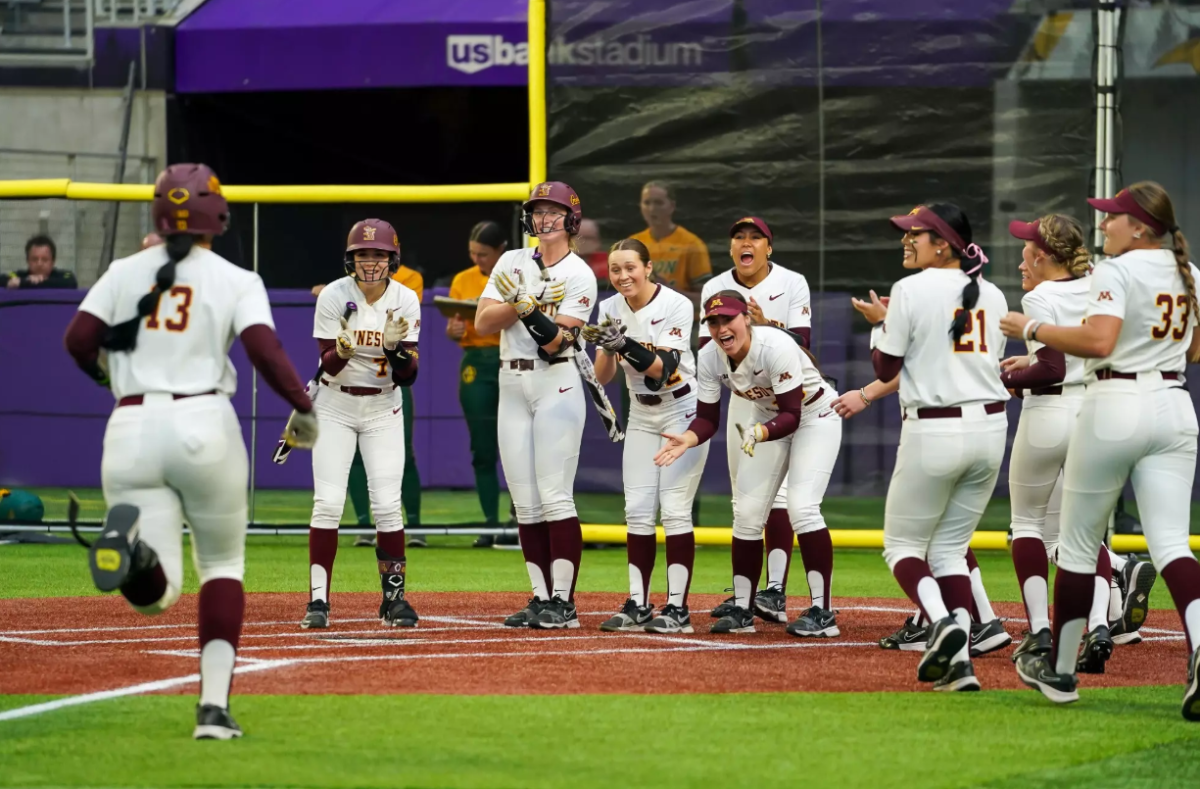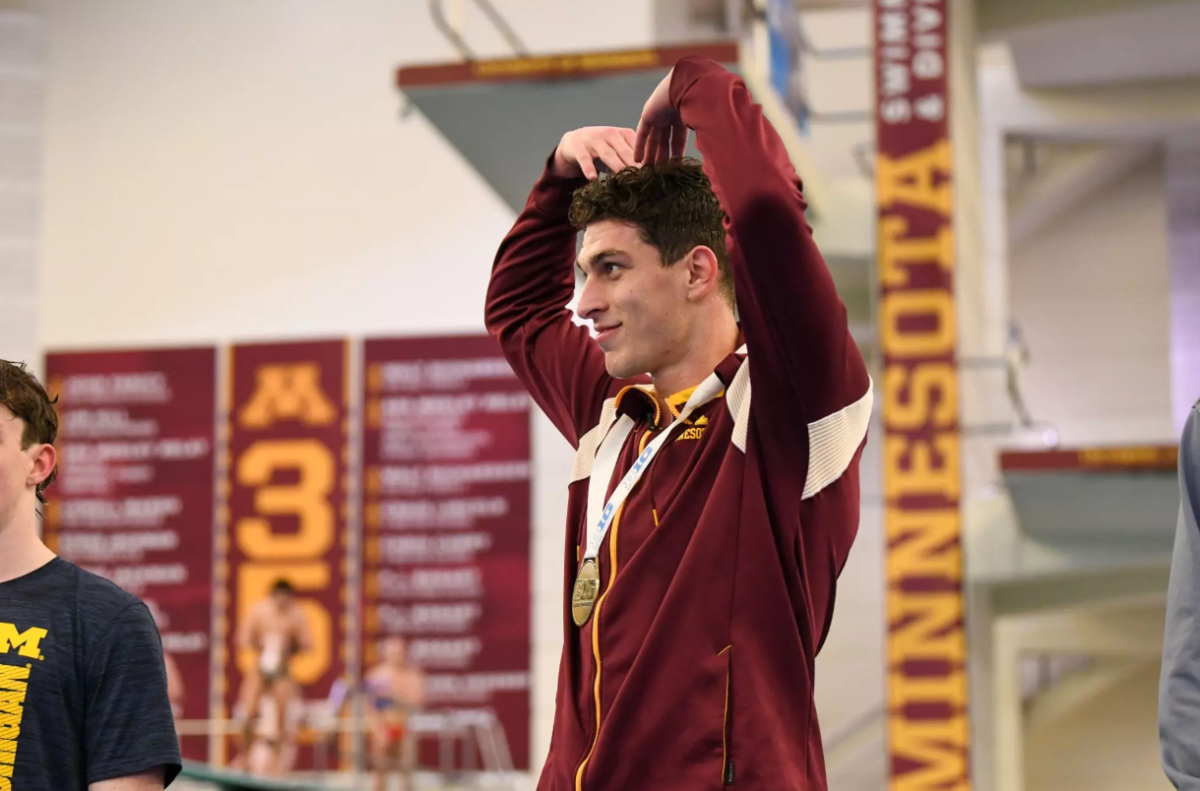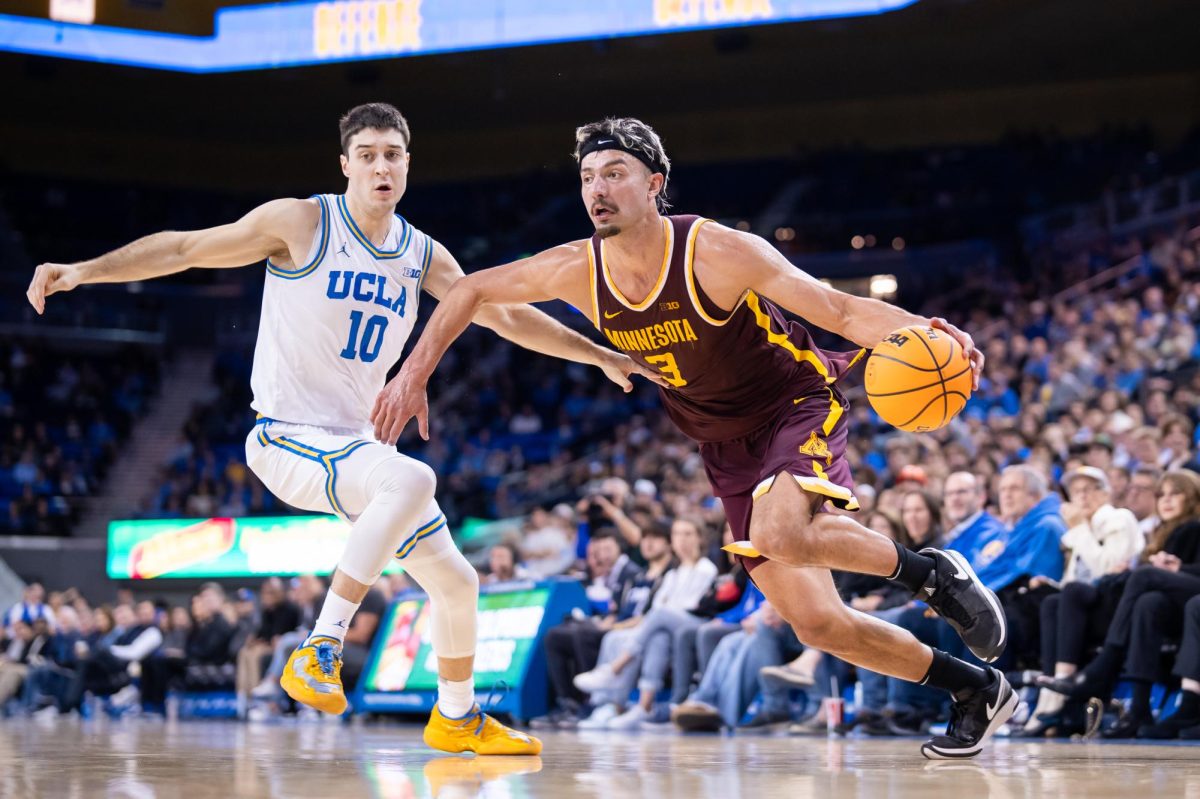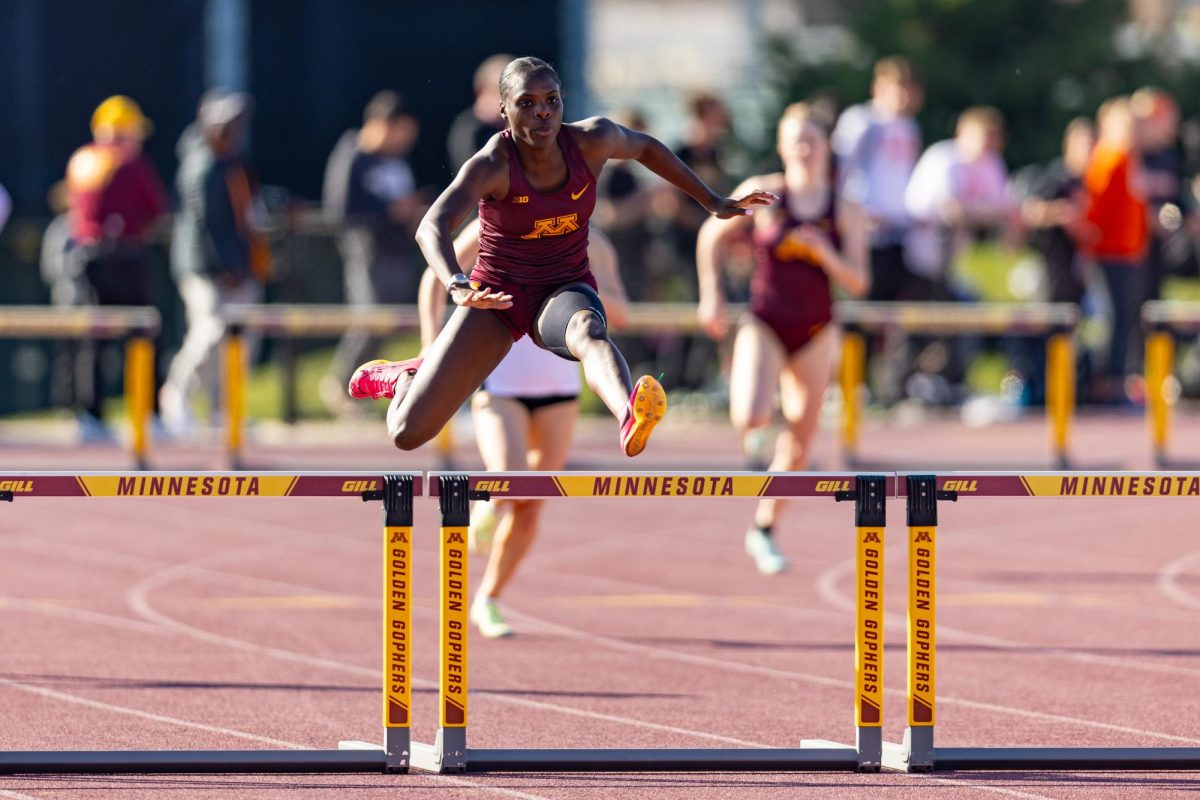Changes to the student athlete program at the University of Minnesota set to begin next fall include compensation for student athletes who earn good grades and a new law clinic that will help student athletes manage endorsements.
Earlier this month, the University announced it will financially compensate student athletes for high academic performance starting fall 2022. The decision was made after the U.S. Supreme Court affirmed a lower court ruling made two years ago, which decided the NCAA violated antitrust law by prohibiting payment to athletes.
The specifics of what grades an athlete needs to qualify for compensation have not been publicly released yet, said Paul Rovnak, director of communications for Gopher Athletics.
Parker Fox, a first-year student in the University’s sports management master’s program who plays on the men’s basketball team, shared his thoughts on the new grade bonuses.
“I really value my education and I worked really hard to get my degree,” Fox said. “I think it is super cool that us athletes are able to make some sort of money off of how we are doing in the classroom.”
Fox added that he does not think people understand the amount of time athletes spend on school and how much they sacrifice to balance good grades and athletic performance.
“Finding different ways to make compensation fair for student athletes, I think, is super important,” Fox said.
Fox said he thinks the grade compensation will encourage higher GPAs and test scores as well as give student athletes income for the revenue they bring to the school.
Prior to last July, student athletes were unable to use their name, image and likeness (NIL) for compensation. Now, student athletes can use their NIL to sign endorsement deals and sponsorships.
“I would say it is basically impossible to have a job and get money while being a student athlete,” Fox said. “This [NIL deal] allows for that source of income that we couldn’t otherwise get.”
Fox added that it can still be tough if athletes do not have an agent to help them manage their business ventures. He said the issue is knowing who to trust and who could be “ripping you off.”
New law clinic to support student athletes
The University Law School will launch a new Sports and NIL clinic in September. Chris Pham, who is co-chair of Fredrikson and Byron’s Sports and Entertainment group, will run the clinic.
Fox said the new clinic is an “awesome” idea to help student athletes with the legal side of endorsements and brand deals. He added this would help young college students with reading contracts and knowing what to ask for from companies.
“I think the legal side behind NIL is something that a lot of kids that are 18, 19, 20, 21, don’t really understand,” Fox said.
The clinic will be available to all students free of charge to help them manage NIL contracts and deals. Pham said he sees the clinic as a “two-fold benefit” because student athletes can take advantage of the free legal advice and law students get hands-on experience.
Pham said the clinic has generated a lot of media attention because not many schools have a clinic dedicated to student athletes. Pham added that he has already heard from parents of high school student athletes who are interested in the clinic because their children will be playing sports at Division I universities.
“I think we definitely have a buzz right now,” Pham said. “Not a lot of other law schools are doing anything in this space.”
Tarun Sharma, a third year law student who is vice president of the University Sports Law Association, said he helped draft the proposal for the clinic with two other law students after hearing a professor speak about the new NIL policy.
“We were thinking, ‘Why don’t we have the resources here available to be able to help student athletes?’” Sharma said.
Pham said he thinks the NIL policy change is a good thing for student athletes because they bring in a lot of money for the school.
“I think it is fair because these universities make millions and billions of dollars from sports,” Pham said. “So to even provide the opportunity for students to be able to exploit their publicity rights is the right thing.”
Pham added that there is some monetary value and opportunity for all student athletes if they are on social media.
“This is lending itself to tremendous opportunity,” Pham says. “We will certainly see in the coming years the impact of this change.”


